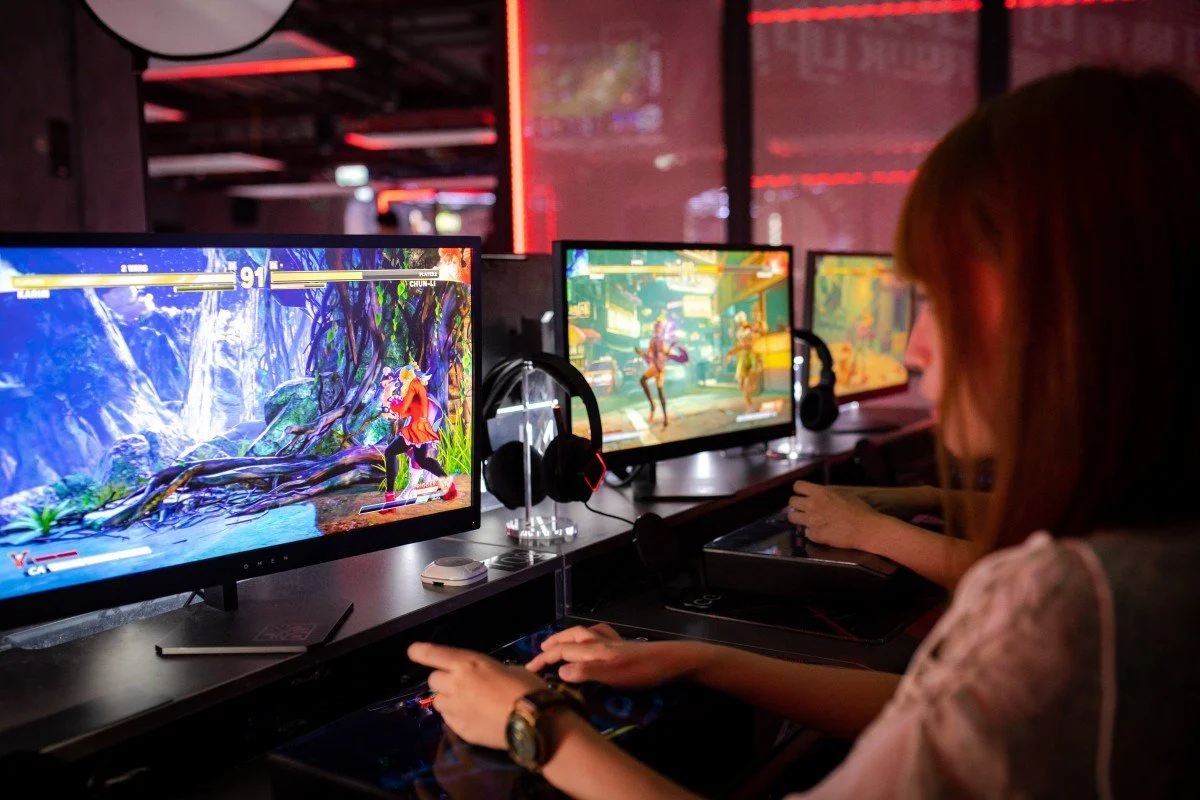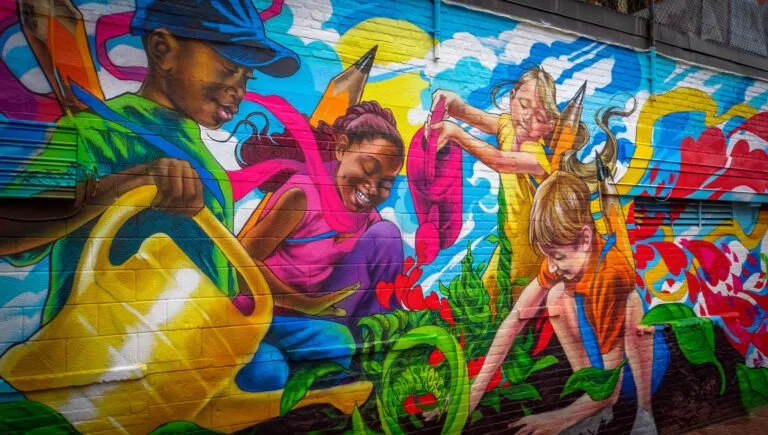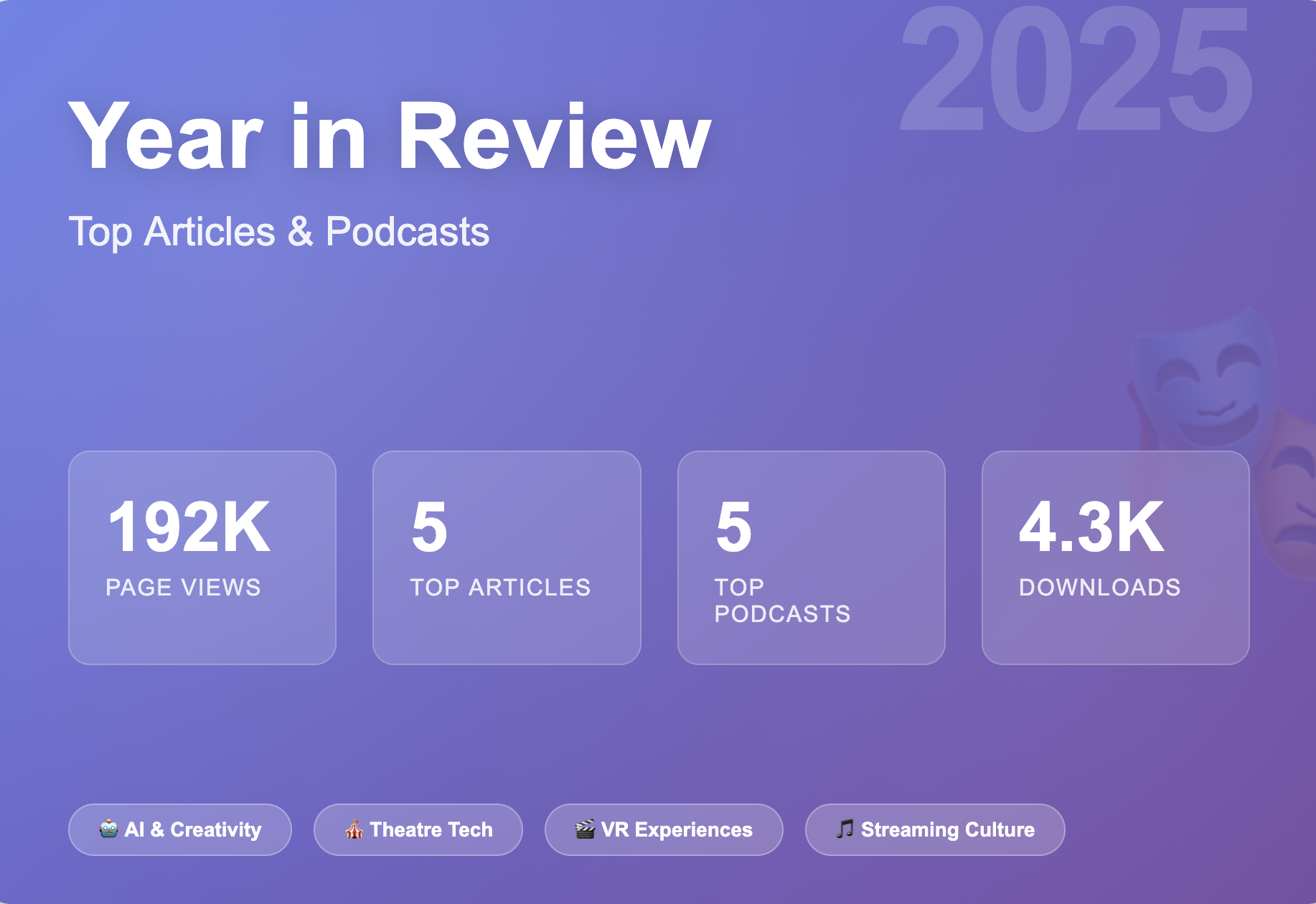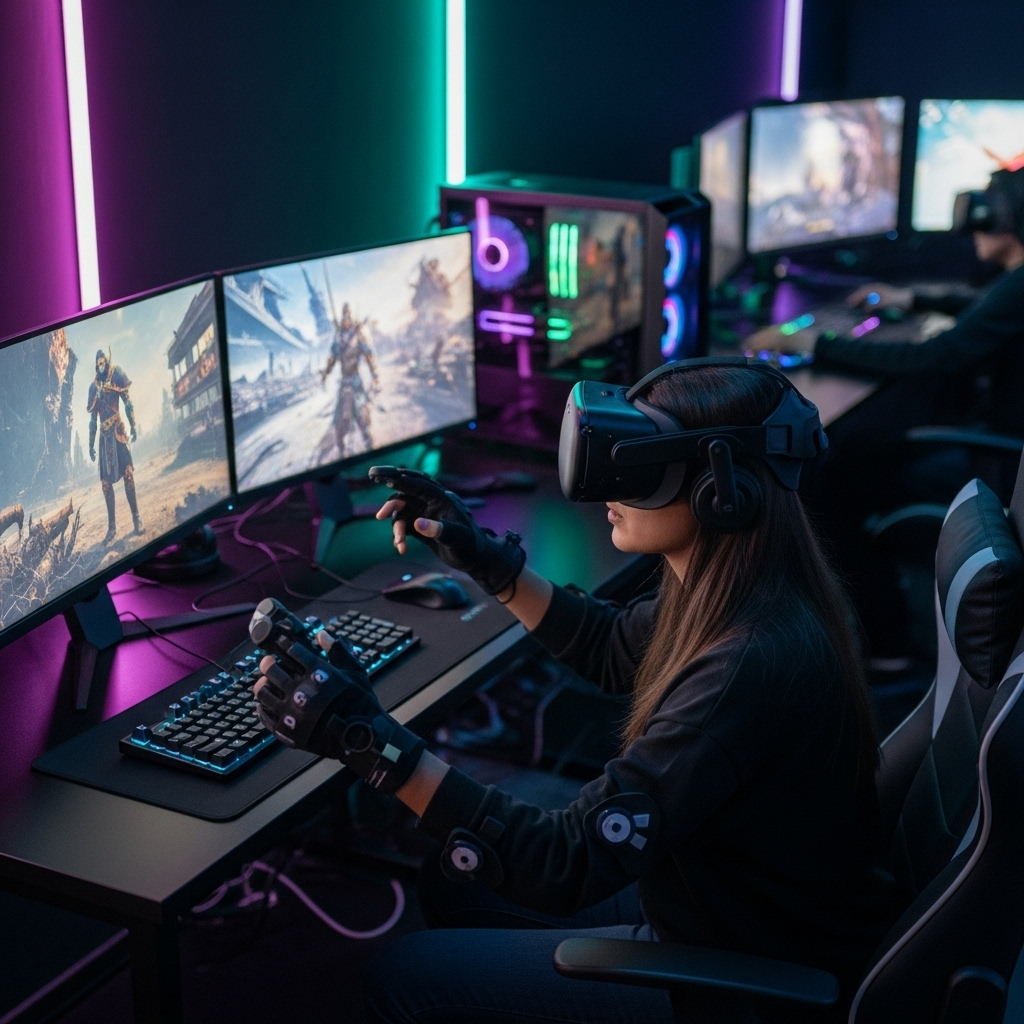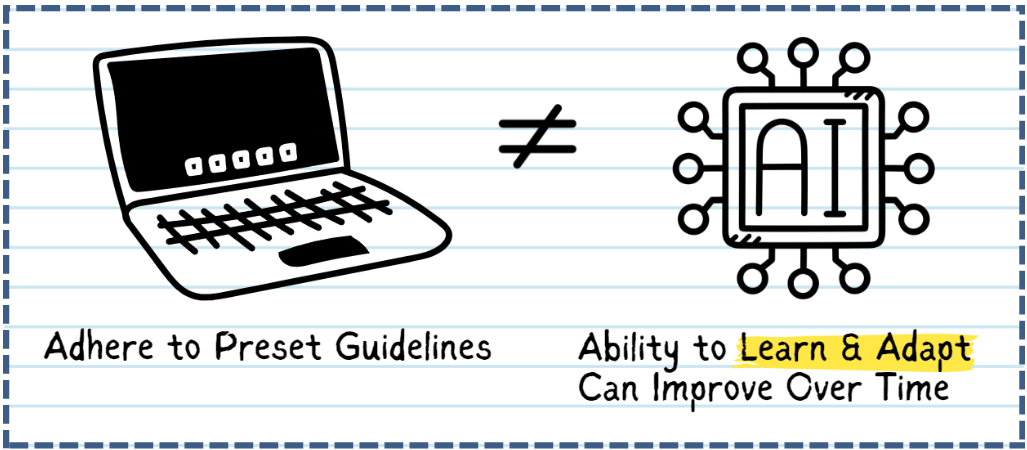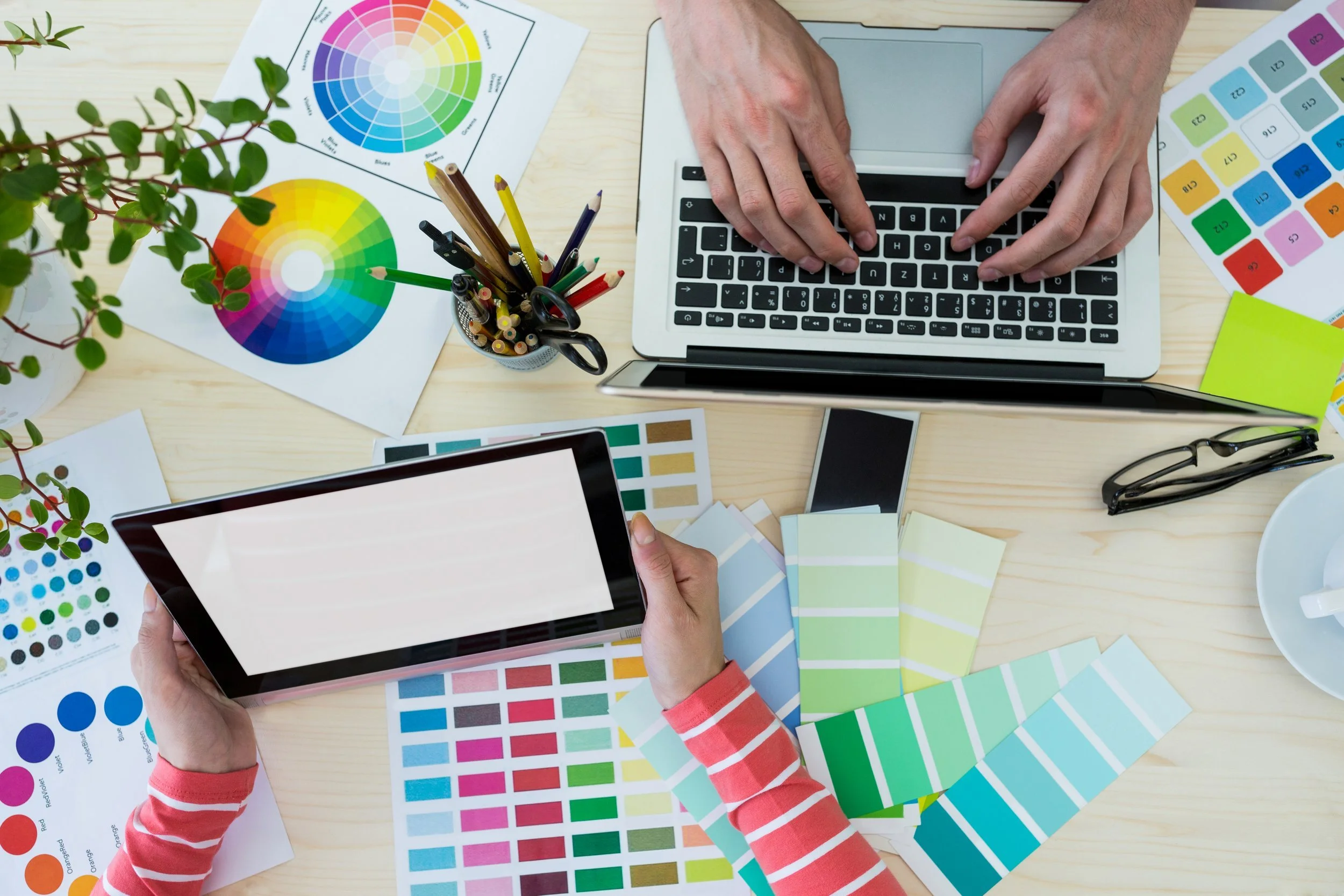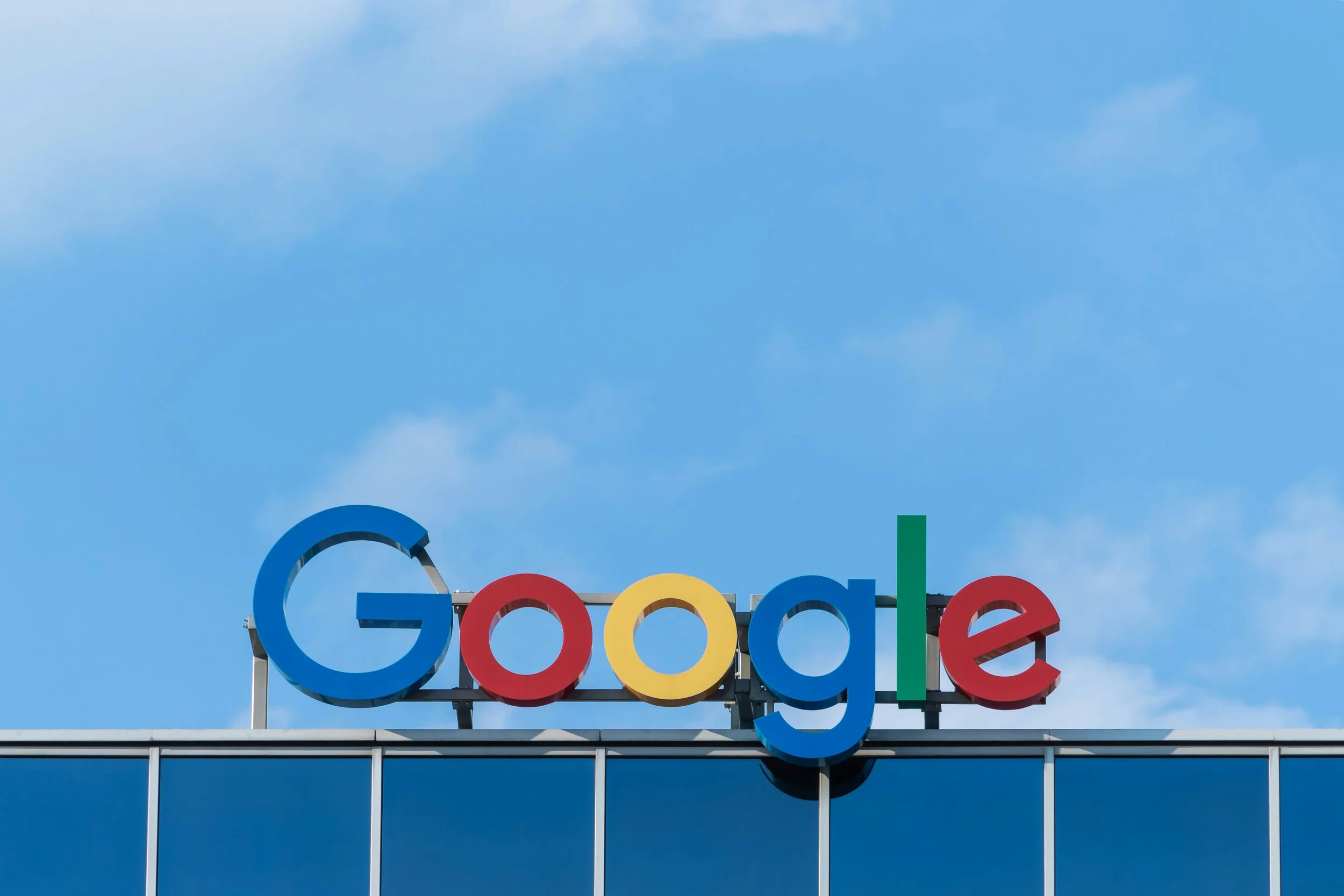This month's Byte-Sized Culture is a Black History highlight spotlighting five Black American artists — Martine Syms, Stephanie Dinkins, Rashaad Newsome, Sondra Perry, and Shaylin Wallace — who are pushing the boundaries of contemporary art through technology. Each artist uses a distinct set of digital tools, from AI systems and algorithmic video to 3D modeling, NFTs, and humanoid robotics, to examine how race, identity, and power are reflected and distorted within those technologies.
The Future is Now: Our Most-Read Articles and Most-Downloaded Podcasts of the Year
As technology continues to reshape the arts and entertainment landscape, our readers and listeners have shown a clear appetite for understanding these transformations. From AI's role in creative processes to the evolution of virtual reality and streaming, this year's most popular content reveals the questions on everyone's minds.
Part I - Beyond the Screen: The Role of AI in Evolving Game Ecosystems and Player Dynamics
This study provides a comprehensive analysis for Scopely to enhance its position as a leader in interactive and mobile gaming, focusing on AI integration in live operations, in-game commerce, and player analytics. The research reveals the urgent need for gaming companies to navigate accelerated AI adoption and evolving player expectations for personalized experiences. The goal is to identify the most impactful AI applications over the next three years and strategies that maximize engagement and monetization while maintaining player trust. Significant to this goal is balancing innovation with ethical considerations, including data privacy and transparency, while recognizing AI's potential to enhance storytelling and create immersive experiences. Employing a mixed-methods approach with industry interviews, a survey of over 1,000 U.S. gamers, and secondary research, Part I establishes the foundation for understanding AI's transformative impact - setting the stage for Part II's empirical findings and strategic recommendations.
Byte-Sized Culture: The Business of Art in the Digital Age
The digital art world is long past being just a new creative medium; it has evolved into a complex economic arena. What was once a niche field is now a battleground for artists, developers, and institutions grappling with new questions of ownership, value, and creative rights. This evolving landscape is driven by emerging technologies, including AI and blockchain, which are not only reshaping how art is made but also challenging the very foundations of traditional art markets and the way artists earn a living.
AI in Traditional Music Preservation: Lessons from the Konghou (Chinese Harp)
This article investigates how artificial intelligence aids in the preservation of traditional music, using the Chinese Harp (Konghou) as a key example. It explores the technology's opportunities and challenges through an examination of existing models like Folk RNN for Irish music and MusicMamba for Chinese traditional music
AI-Driven Dubbing: A New Frontier for Voices in the Audiovisual Industry
What is the world if not a collection of stories? And, what is a globalized world without the capacity to share those stories across cultures, borders, and languages? Dubbing has long served as a bridge between screens and diverse audiences. However, as with every technological shift, we now find ourselves entering a new era: artificial intelligence. What challenges does this emerging paradigm present to the entertainment industry with regards to dubbing?
Advertising Monopolies, AI Policy, and Pirating Issues
This spring, we saw major movements in the legal landscape of digital advertising. Between Google being ruled as an advertising monopolist and Mark Zuckerberg’s war on creative materials, digital advertising is gearing up for change. Read on for more information, including pirating issues, new ambitions for VR movies, and increased access to AI image generation.
Models for Guaranteed Income, Resource-Sharing, and Pension Programs: Saving the Starving Artist & Cultural Sector
As technology reshapes employment, artists face particular financial challenges, earning 30% less than their peers while lacking traditional benefits. This article examines how cities and organizations are testing new solutions—from guaranteed income programs to innovative pension schemes—to provide artists with greater economic stability.
AI Integration and Barriers in Education
Educators are grappling with the challenge of integrating AI into classrooms, fearing that these systems might replace traditional learning methods rather than enhance them. This brings us to the question: what barriers prevent educators from implementing artificial intelligence into their curriculum, and how can they be addressed?
Your 2024 Favorite Reads
Artificial Intelligence’s Involvement in the Human Creative Process
As AI continues to integrate into our everyday lives, how does it impact our creativity? Many researchers and scholars agree that the technology may promote significant opportunities in this space. By introducing novel ideas and opportunities to users, it may be most effective as a tool to augment, rather than replace, human creativity.
November News: Tech Innovations in Arts and Culture Markets
Major breakthroughs in the markets for art, books, and fashion arrive perfectly timed for the holiday season. Tech innovations demonstrate their ability to reshape markets and incentivize commerce across digital economies. From fine art to rare fashion finds, tech is redefining how we navigate digital art and cultural commerce. Read on to learn how you might make your next purchase with the help of artificial intelligence or the blockchain.
Future of Museums Summit 2024 Key Takeaways
Sustainability and AI were at the forefront this year at the American Alliance of Museums (AAM) Future of Museums Summit. What role will museums play in creating climate-friendly communities? And how can AI be used to maximize efficiency, increase accessibility, and deepen engagement? Read key conference takeaways from Xueer Ho and Dr. Brett Ashley Crawford.
Envisioning the Future of Museum Accessibility Through Artificial Intelligence
With AI’s ability to automatically produce content and process complicated datasets with high accuracy, museums worldwide are exploring ways in which this innovative technology can help them better achieve their missions and advance accessibility efforts. Through case studies, learn about three applications of this technology: content digitalization, language accessibility, and visual description.
Part I: A New Era of AI in the Entertainment Industry
As exemplified by the Hollywood strikes of 2023, we find ourselves in a new era of Artificial Intelligence in film and television. While studios are looking to cut costs, performers seek job security, and consumers seek quality content. Through research conducted in collaboration with facial motion capture technology provider Faceware Technologies Inc., Master of Entertainment Industry Management students at Carnegie Mellon sought to gain insight on how AI-generated content will transform existing industries, including how this technology could affect employment in the entertainment industry, content development, budgets, contracts, legislation, and privacy rights.
August News: From Games and Museums to Consumer Protection Policies
Did you catch this month’s headlines in tech and the arts? Advancements in technology make new opportunities for creators and consumers alike. Policy to support transparency in device repair and use of AI may help users make informed decisions. Meanwhile, a landmark Google antitrust ruling supports competition in the search engine market.
July News: Arts Leaders Face Big Questions on AI and Privacy
How can AI and blockchain play a functional role in arts and cultural organizations? At Christie’s 8th Annual Art + Tech Summit, top arts leaders gathered to address this question and more. While companies race to integrate the latest technology, uses may not align with consumer demand or practical need. With eyes on the creative industry’s next steps, companies must consider ethics of the AI tools they implement. For Disney, this resulted in a “hacktivist” cyber attack, leaking more than 1 TB of company data in protest of AI artwork policies. Meanwhile, individuals must take more responsibility in protecting their own data privacy as Google Chrome once again takes back promise to eliminate third-party cookies. Read more about this month’s news below.
Survey Results: Audiences and Generative AI and the Comic Book Industry
Studies focused on the “artistic” aspects of generative AI reveal negative bias, and a preference for human creations. None of these studies, however, account for the multimodality of comic books: text and image. Is a human-written story a mitigating factor for readers? Is it feasible for writers to become “AI comic book artists" or will consumers drive AI imagery out of the market altogether? Given the multitude of information making it difficult to discern how comic book consumers perceive AI imagery, the following provides first-person research by generating an AI comic and conducting a survey on unsuspecting comic book customers.
May News: AI, Misinformation, and Cybersecurity
Once again, AI continues to be front of mind this month. While companies expand AI functionality, artists call for protection of their likeness, and consumers call for accurate information. Meanwhile, cyberattacks evolve, and arts enterprises with high profile clients are challenged to respond. Looking at organizational workflow, popular tools like Canva are expanding to become a “one-stop shop” for design needs.
April News: Entertainment Industry Divided on AI Tools
This month, music and film are at the forefront as each battles with the future uses for burgeoning tech. While AI-generated film visuals seem to be coming up short, progress toward realistic AI-generated music is starting to send shockwaves. On the consumer side, music streaming tools are being released to allow more listening experience customization. Across the industry, artists are celebrating ways that some these new tools can enhance their work, while speaking out against potential impacts on jobs, compensation, and creative freedom.


